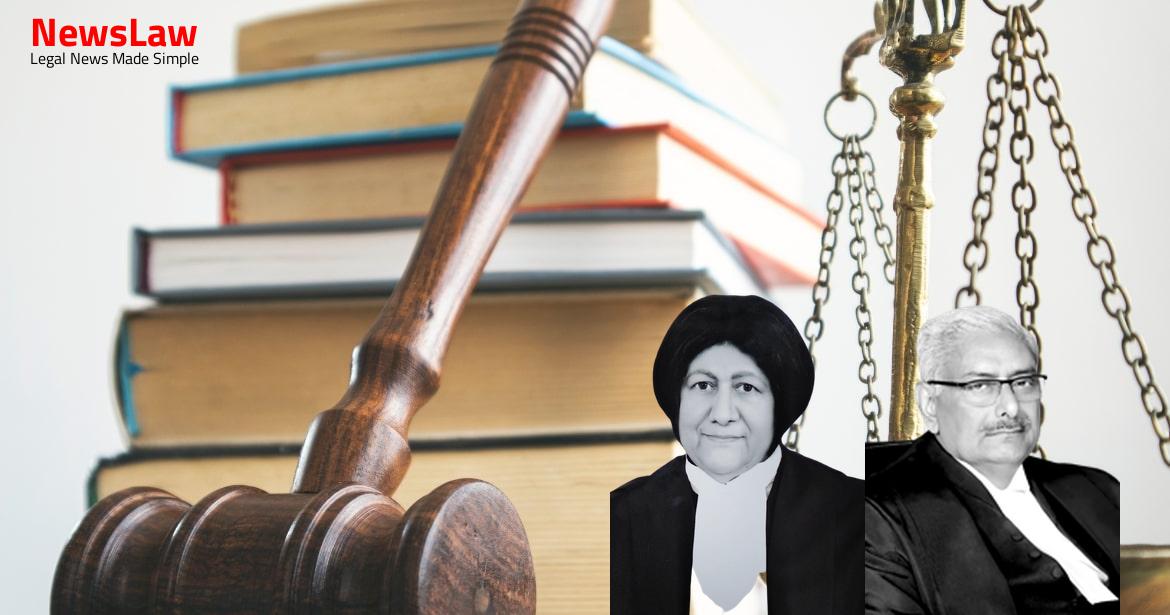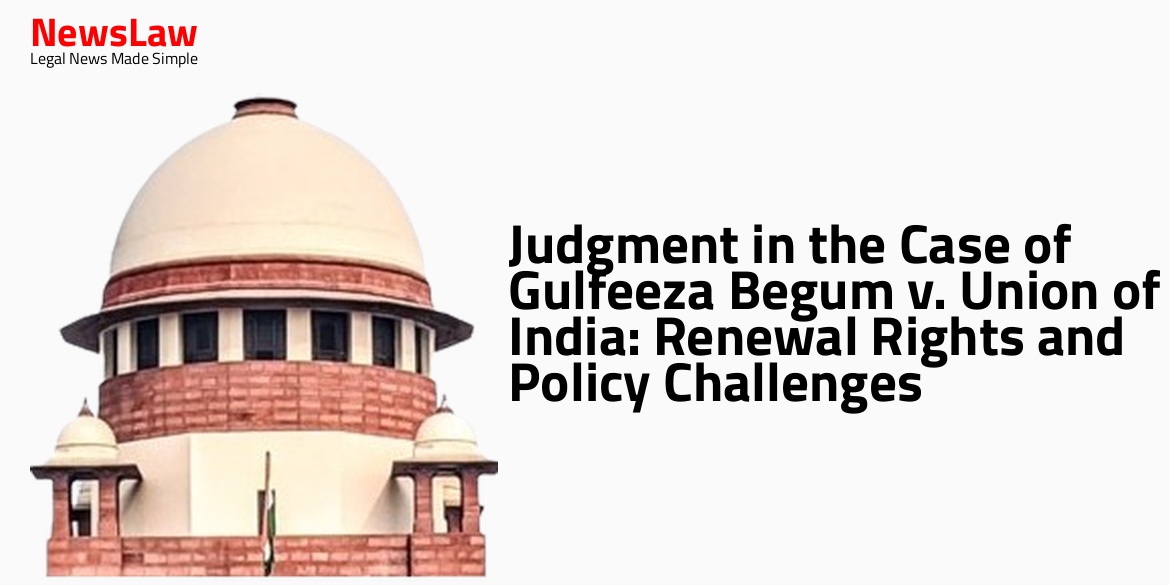Explore a detailed legal analysis of a significant case where the court examines the authority of a Tribunal to enforce environmental compliance orders. The case delves into the consequences of non-compliance with pollution control measures and the extent of the Tribunal’s jurisdiction in ensuring adherence to environmental regulations. Follow along to delve deeper into the legal intricacies of this critical environmental law matter.
Facts
- O.A. No.73 of 2012 was transferred to the Central Zonal Bench of the National Green Tribunal at Bhopal on 21 April, 2015.
- The State Government was directed to issue necessary orders for compliance by 31 July, 2015.
- The matter was to be listed on 3 August 2015 for reporting compliance.
- The Central Zonal Bench noted non-compliance with the requirement of displaying a valid PUC Certificate for motor vehicles.
- The State’s reasons for non-implementation were found unsatisfactory.
- The State was directed to ensure compliance, with consequences including suspension or revocation of Registration Certificate for non-compliant vehicles.
- Vehicles without a valid PUC Certificate were not to be provided fuel by any dealer or petrol pump.
- The State was granted 60 more days for compliance on condition of depositing Rs.25 crores for security.
- An application for review of the order was rejected on 3 August, 2015.
- The appellant faced consequences of suspension/revocation of Registration Certificate and denial of fuel by petrol pumps.
- A review application was rejected but appellant was granted 60 days to comply with the order, with a security deposit of Rs.25 crores.
- The Respondents filed a PIL in 2003 to stop non-compliant vehicles from plying on roads of Indore.
- The PIL was transferred to the National Green Tribunal in 2013 and re-numbered as Original Application No.73 of 2012.
Also Read: Land Sale Dispute Legal Analysis
Issue
- The main questions in this appeal involve whether the Tribunal had the authority to direct the State Government to issue orders regarding fuel supply to vehicles without a valid PUC, whether vehicles without a valid PUC can be denied fuel, and whether the Tribunal could compel the State Government to make a monetary deposit for order compliance.
- Growing global concerns over pollution and declining air quality have been prominent over the past few decades.
Also Read: Legal Analysis on Limitation Period in IBC Proceedings
Analysis
- The Central Motor Vehicle Rules, 1989, specifically Rule 115, mandates that every motor vehicle must comply with emission standards to prevent air pollution.
- The National Green Tribunal (NGT) Act does not provide the authority to direct the State to make monetary deposits for compliance.
- The Environment (Protection) Act, 1986 empowers the Central Government to take necessary measures to protect and improve the environment.
- Non-compliance with emission standards can result in penalties such as suspension of registration and fines.
- The NGT Act allows the Tribunal’s orders to be enforced as civil court decrees, ensuring compliance with environmental regulations.
- Orders passed by the NGT are binding on the State and enforceable, with penalties for non-compliance with pollution control measures.
- The Tribunal can transmit its orders to civil courts for execution, and failure to produce a Pollution Under Control (PUC) certificate can lead to suspension of registration.
- The NGT Act does not provide for the deposit of security to secure compliance with its orders.
- Enforcement of statutory environmental obligations under the relevant rules falls on manufacturers, owners, and authorities involved with motor vehicles.
- Failure to comply with the provisions of the Environment Protection Act and its rules can result in imprisonment and fines.
- Non-compliance by a government department can lead to liability for the Head of the Department.
- The Act empowers the Central Government to issue directions for environmental protection.
- Specific provisions are made for testing and regulating emission levels from motor vehicles.
- Offenses under the Act can result in penalties and suspension of vehicle registration.
- The National Green Tribunal has jurisdiction over civil cases related to environmental issues.
- The Tribunal can provide relief, compensation, and restitution for environmental damage.
- Procedures and powers of the Tribunal are defined, allowing for natural justice and flexible procedures.
- Penalties for non-compliance with Tribunal orders are outlined.
- The Tribunal can apply principles of sustainable development and polluter pays in its decisions.
- The Tribunal can issue orders for costs and monetary compensation for environmental damage.
- Rules for emission standards for motor vehicles and certification of compliance are detailed.
- In exercise of powers conferred by the Motor Vehicles Act and in particular Section 110 thereof, the Central Government has framed the Central Motor Vehicles Rules, 1989 (the 1989 Rules).
- A Public Interest Litigation was entertained by the Court, seeking directions on the Government to spread information on environmental pollution and the need to protect the environment through various media channels free of cost.
- The Central Government is empowered to take necessary measures for protecting and improving the environment, and for preventing, controlling, and abating environmental pollution as observed in previous cases.
Also Read: Challenging Conviction: Legal Analysis Spotlight
Decision
- The appeals have been allowed.
- The reasons for allowing the appeals are outlined.
- The decision in the specific part (RPC) of the judgment is in favor of the appellant.
- Further details of the ruling relating to the specific part (RPC) are provided.
Case Title: STATE OF MADHYA PRADESH Vs. CENTRE FOR ENVIRONMENT PROTECTION RESEARCH AND DEVELOPMENT . (2020 INSC 516)
Case Number: C.A. No.-008932-008933 / 2015



